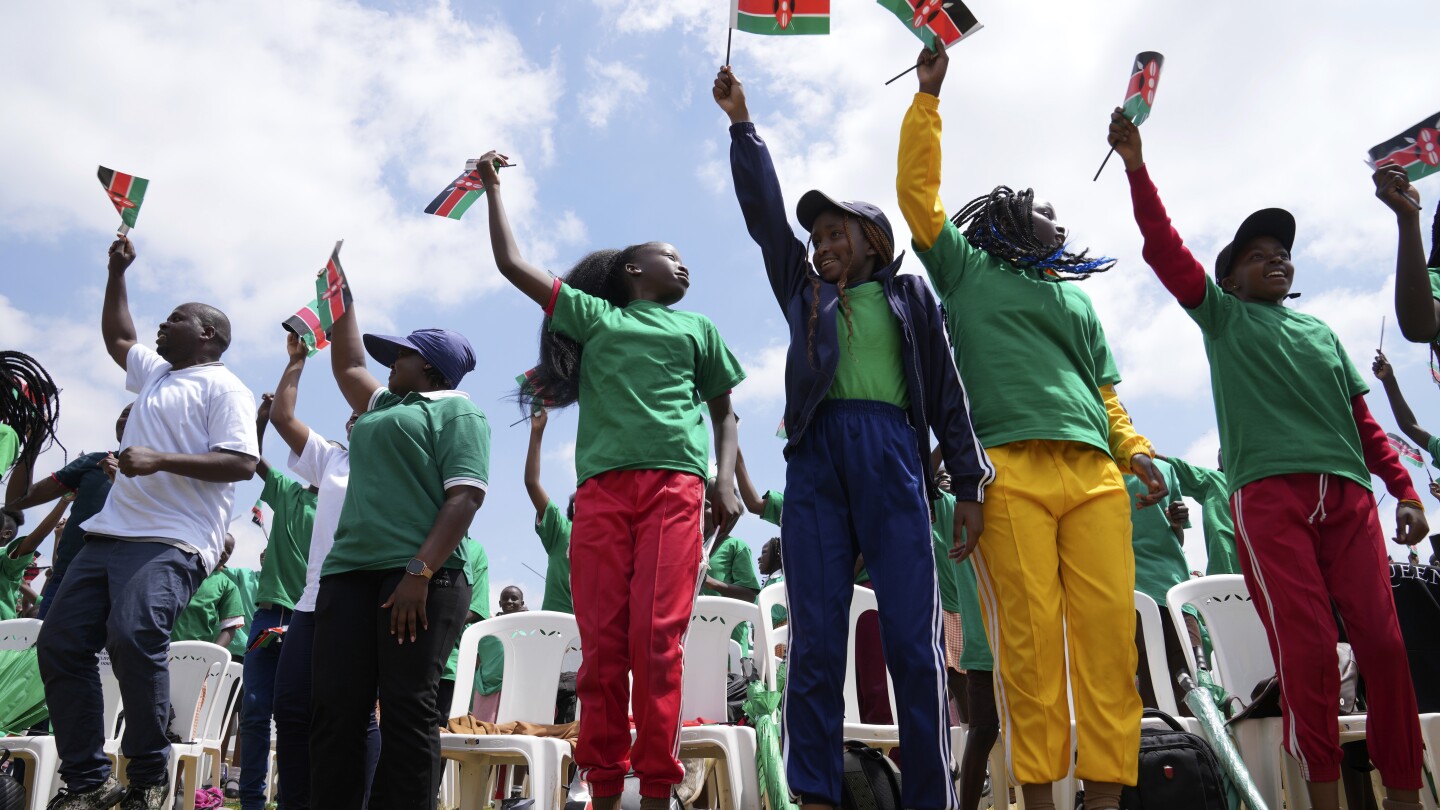NAIROBI, Kenya (AP) — Kenya’s president on Tuesday defended the high taxes the government recently imposed, calling them a “necessary sacrifice “in helping the country deal with ballooning foreign debt which now stands at $70 billion.
Speaking at celebrations marking 60 years since Kenya’s independence from Britain, President William Ruto said East Africa’s largest economy was no longer at risk of defaulting on bond payments following economic reforms his government had undertaken since taking power last September.
“Though painful, the sacrifices we have made will not only make our freedom fighters proud,” Ruto told tens of thousands of people in the capital, Nairobi. He added: “I can now confirm without fear of any contradiction that Kenya is safely out of the danger of debt distress, and that our economy is on a stable footing.”
The economy has taken center stage in politics and daily life in Kenya as the government tackles mounting debts. A $2 billion Eurobond is due in June.
Last month, the government reached a lending agreement with the International Monetary Fund amounting to $938 million, a boost for the country struggling with dwindling foreign exchange reserves.
Recent attempts at reforms include a mandatory housing levy which courts struck down last month for being “discriminatory, irrational, arbitrary and against the constitution.”
The president also removed subsidies on fuel and maize flour — a staple in Kenya.
Ruto vowed that “all taxes collected by the government shall be put to their intended use and that no single shilling — not one shilling — shall be lost through embezzlement, theft or corruption.” Kenyans have long complained of widespread official graft.
The president in his speech did not mention another pressing threat in Kenya, the deadly rains fueled by the El Niño phenomenon.
Ahead of the national holiday, the government announced that Kenyans would be allowed free entry to all national parks and museums.
But John Ndirangu, a shopkeeper from Muranga county, said he was not planning on attending the celebrations or taking up the free park entry.
“Where do you get the money in this bad economy to travel to see wild animals when you are hungry?” he asked.
Veteran politician and political analyst Njeru Kathangu, who helped to fight for multi-party democracy in Kenya in the 1980s, said the country needs a reset to attain its potential.
“Two generations have now passed since the birth of Kenya as a nation, but there’s nothing to show for it,” he said. “If Kenya cannot change at the beginning of this third generation, then we will not be a state at all.”

